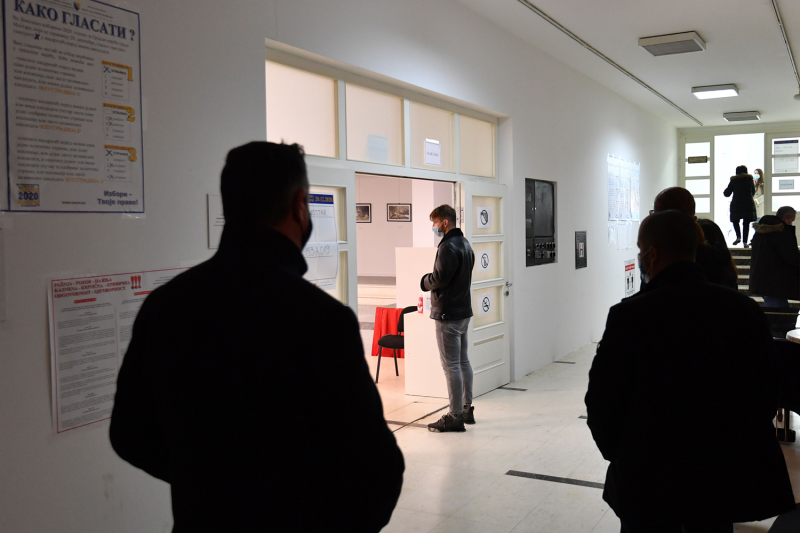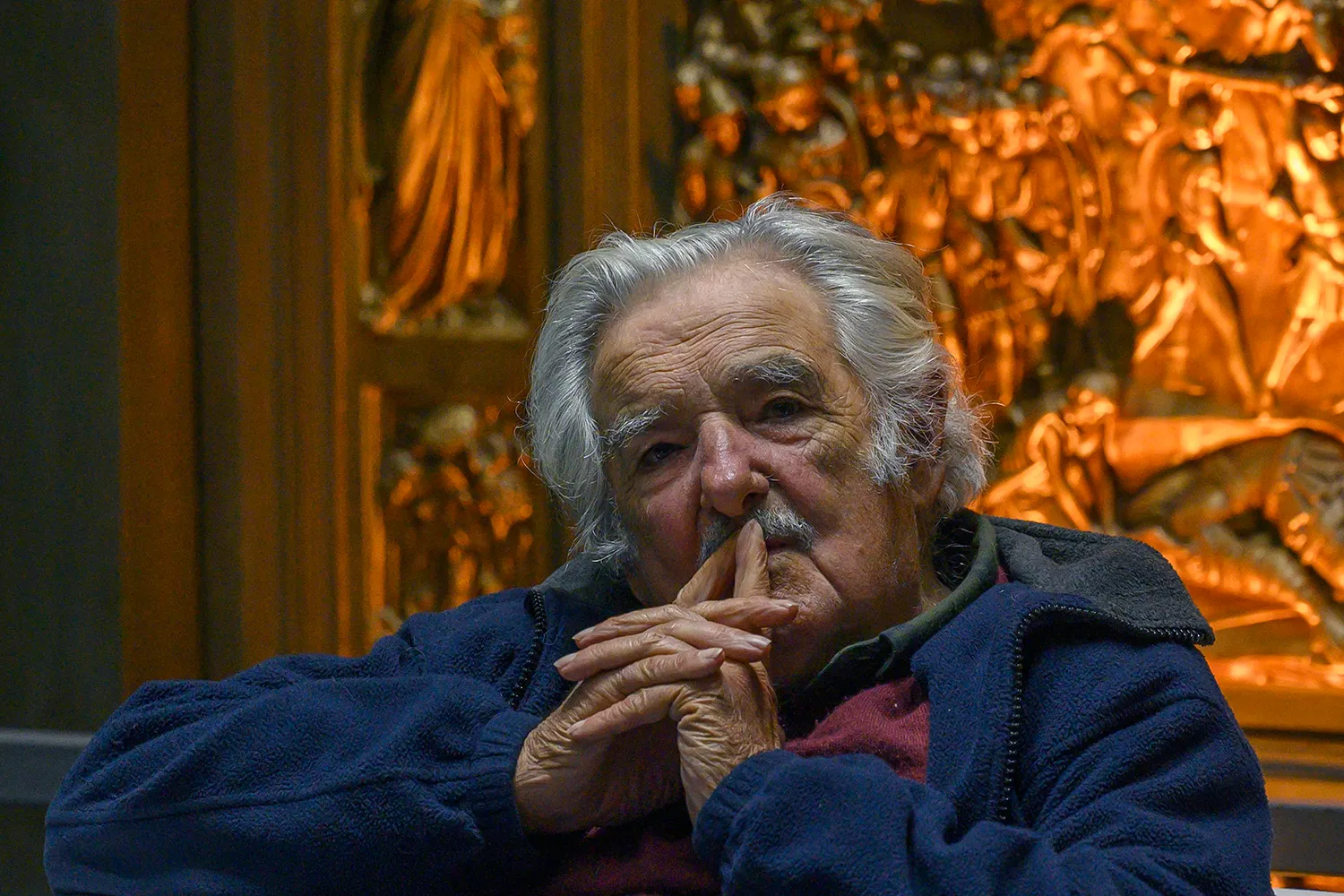Trump Delivers Middle East Policy Speech, Announces Investment Deals in Riyadh

Trump Delivers Middle East Policy Speech, Announces Investment Deals in Riyadh
The U.S. president kicked off his three-day Persian Gulf tour with a major Middle East policy speech in Riyadh.
U.S. President Donald Trump (left) greets Saudi Crown Prince Mohammed bin Salman during the U.S.-Saudi Investment Forum in Riyadh, Saudi Arabia, on May 13. Fayez Nureldine/AFP via Getty Images
U.S. President Donald Trump kicked off his three-day Persian Gulf tour in Saudi Arabia on Tuesday with a sweeping foreign-policy address that heralded an optimistic future for the Middle East.
Trump expressed hope that the White House could negotiate a deal with Iran to curb its proxy influence and ensure that Tehran never obtains a nuclear weapon. “If Iran’s leadership rejects this olive branch and continues to attack their neighbors, then we will have no choice but to inflict massive maximum pressure and drive Iranian oil exports to zero,” Trump said.
U.S. President Donald Trump kicked off his three-day Persian Gulf tour in Saudi Arabia on Tuesday with a sweeping foreign-policy address that heralded an optimistic future for the Middle East.
Trump expressed hope that the White House could negotiate a deal with Iran to curb its proxy influence and ensure that Tehran never obtains a nuclear weapon. “If Iran’s leadership rejects this olive branch and continues to attack their neighbors, then we will have no choice but to inflict massive maximum pressure and drive Iranian oil exports to zero,” Trump said.
At the same time, Trump appeared to de-prioritize White House efforts to convince Saudi Arabia to sign the Abraham Accords, a series of normalization agreements with Israel. “You’ll do it in your own time,” Trump said.
Instead, Trump’s focus in Riyadh on Tuesday appeared to center on securing investment. The two countries announced a $600 billion Saudi commitment to invest in the United States that included deals on energy, critical minerals, defense, and health.
Toward the end of his speech, Trump announced that Washington will be lifting sanctions on Syria “to give them a chance to rebuild,” following in the footsteps of U.S. allies in Europe that have been urging Washington to do so. “Good luck, Syria,” Trump added. “Show us something special.” Trump is expected to “say hello” to Syrian President Ahmed al-Sharaa on Wednesday in Riyadh, according to the White House.
Read more in today’s World Brief: Trump Champions ‘Golden Age of the Middle East’ During Saudi Arabia Visit.
This post is part of FP’s ongoing coverage of the Trump administration. Follow along here.
Alexandra Sharp is the World Brief writer at Foreign Policy. Bluesky: @alexandrassharp.bsky.social X: @AlexandraSSharp
More from Foreign Policy
-

Indian Air Force personnel stand in front of a Rafale fighter jet during a military aviation exhibition at the Yelahanka Air Force Station in Bengaluru. A Tale of Four Fighter Jets
The aircraft India and Pakistan use to strike each other tell a story of key geopolitical shifts.
-

A cardinal in a black robe with red sash with hands folded in front of him walks past a stage and steps. Conclave Sends Message With American Pope
Some cardinals had been agitating for U.S. leadership to counter Trump.
-

An illustration shows red tape lines crossing over and entrapping a semiconductor chip. Is It Too Late to Slow China’s AI Development?
The U.S. has been trying to keep its technological lead through export restrictions, but China is closing the gap.
-

A man watches a news program about Chinese military drills surrounding Taiwan, on a giant screen outside a shopping mall in Beijing on Oct. 14, 2024. The Pentagon Fixates on War Over Taiwan
While U.S. military leaders fret about China, Trump has dismissed the Asia-Pacific.









Join the Conversation
Commenting on this and other recent articles is just one benefit of a Foreign Policy subscription.
Already a subscriber?
.
Subscribe
Subscribe
View Comments
Join the Conversation
Join the conversation on this and other recent Foreign Policy articles when you subscribe now.
Subscribe
Subscribe
Not your account?
View Comments
Join the Conversation
Please follow our comment guidelines, stay on topic, and be civil, courteous, and respectful of others’ beliefs.
Change your username |
Log out
Change your username:
CANCEL
Confirm your username to get started.
The default username below has been generated using the first name and last initial on your FP subscriber account. Usernames may be updated at any time and must not contain inappropriate or offensive language.